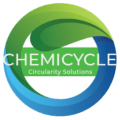
Depolymerise using Glycolysis or Pyrolysis?
In a world wrapped in plastics, we need to find more efficient ways to Depolymerise plastics by improving the Glycolysis and Pyrolysis processes. From Fossil fuel companies to plastics producers to municipal waste operators, and consumers, all are trying to find ways of dealing with plastics around our planet and the growing problem of reuse, recycling, and repurposing needs to be discussed often if it's to be a successful process. The specific temperatures required for recycling plastics using glycolysis or pyrolysis can vary depending on the type of plastic being processed and the desired outcomes. Generally, higher temperatures are used in pyrolysis compared to glycolysis but there are other ways to depolymerise types of plastics at much lower temperatures and that depends on the required outcome your company needs.
Here are some temperature ranges for these processes:
1. Glycolysis:
- Glycolysis typically involves relatively moderate temperatures, generally in the range of 150 to 300 degrees Celsius (302 to 572 degrees Fahrenheit).
- The exact temperature can vary based on the specific plastic being processed and the type of glycol used.
- For example, in the recycling of PET (polyethylene terephthalate) through glycolysis, temperatures around 200 to 250 degrees Celsius are common.
2. Pyrolysis:
- Pyrolysis involves much higher temperatures, often ranging from 300 to 800 degrees Celsius (572 to 1472 degrees Fahrenheit) or even higher.
- The specific temperature in pyrolysis depends on the type of plastic, the desired products, and the pyrolysis technology being employed.
- Higher temperatures are used to thermally break down plastics into smaller hydrocarbon molecules, which can be used to produce fuels or other chemical products.
3. Depolymerisation:
It's important to note that the actual operating conditions and temperature requirements may vary among different recycling facilities and technologies. The choice of temperature is influenced by factors such as the plastic resin type, the equipment used, the desired end products, and the energy efficiency of the process they are used in different contexts and have distinct mechanisms:
- Glycolysis as Depolymerisation:
- Glycolysis is a depolymerisation process specifically used in the context of recycling certain types of plastics, such as polyethylene terephthalate (PET) and polybutylene terephthalate (PBT).
- During glycolysis, the plastic is depolymerised by breaking down the polymer chains into their constituent monomers, such as terephthalic acid and ethylene glycol, through a chemical reaction with glycol or similar solvents.
- This process allows the recovery of the monomeric components, which can then be used to produce new plastic materials, effectively reversing the polymerisation process.
- Pyrolysis as Depolymerisation:
- So, Pyrolysis is also a depolymerization process, but it is applied to a wider range of organic materials, including plastics.
- In pyrolysis, plastics are subjected to high temperatures in the absence of oxygen, causing them to depolymerise and break down into smaller hydrocarbon molecules.
- The depolymerisation in pyrolysis leads to the production of fuels, chemicals, or other valuable products, making it a versatile method for recycling plastics and organic waste.
In summary, both glycolysis and pyrolysis involve depolymerisation processes, but glycolysis is specific to certain plastics and uses glycol as a solvent, while pyrolysis is a broader depolymerisation method applicable to a wider range of materials and uses higher-temperature heating in an oxygen-free environment to break down the polymers.
If you're interested in learning more about how we might be able to assist you, get in touch.
More ways to treat more plastics and foams…
[feedzy-rss feeds=https://www.google.com/alerts/feeds/08001781688789468096/15562302862576653354]
